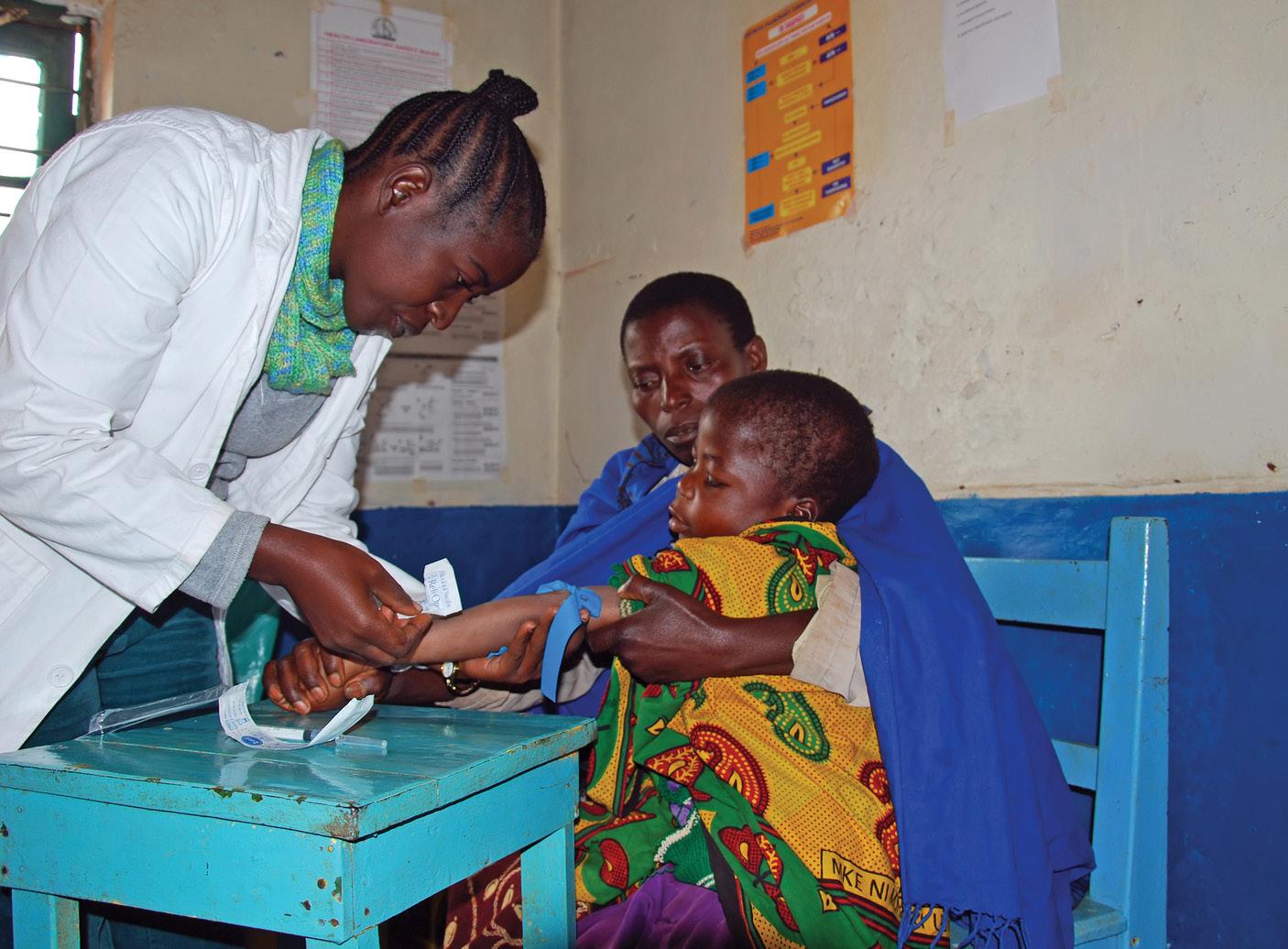
4 minute read
Contributing Authors
from Global Leadership at a Crossroads: Are we Prepared for the Next Pandemic? SECOND EDITION
by Texas A&M School of Veterinary Medicine & Biomedical Sciences
Gerald W. Parker Jr., DVM, PhD Dr. Parker is the Associate Dean for Global One Health at the College of Veterinary Medicine & Biomedical Sciences, and in this role, he also serves as Campus Director for Global One Health at Texas A&M University. He holds joint appointments at the Bush School of Government & Public Service as the Director of the Pandemic and Biosecurity Policy Program within the Scowcroft Institute of International Affairs and at Texas A&M AgriLife Research as strategic advisor for the Institute for Infectious Animal Diseases (IIAD). Prior to his appointments at Texas A&M University, Dr. Parker held various positions in the military and senior executive service throughout 36 years of public service as a recognized defense and civilian interagency leader in biodefense, high-consequence emerging infectious diseases, global health security, and all-hazards public health/medical preparedness. He is a former Commander and Deputy Commander of the US Army Medical Research Institute of Infectious Diseases; Principal Deputy Assistant Secretary for Preparedness and Response at HHS; and Deputy Assistant Secretary of Defense for Chemical and Biological Defense at DOD.
Rebecca Katz, PhD, MPH Dr. Rebecca Katz is an Associate Professor and a Co-Director of the Center for Global Health Science and Security at Georgetown University. Prior to coming to Georgetown, she spent ten years at The George Washington University as a faculty member in the Milken Institute School of Public Health. Her research is focused on global health security, public health preparedness, and health diplomacy. Since 2007, much of her work has focused on the domestic and global implementation of the International Health Regulations (IHR). Since 2004, Dr. Katz has been a consultant to the Department of State, working on issues related to the Biological Weapons Convention, pandemic influenza, and disease surveillance. Dr. Katz received her undergraduate degree from Swarthmore College, an MPH from Yale University, and a PhD from Princeton University.
Advertisement
Michael T. Osterholm, PhD, MPH Dr. Osterholm is Regents Professor, McKnight Presidential Endowed Chair in Public Health, the Director of the Center for Infectious Disease Research and Policy (CIDRAP), Distinguished Teaching

Professor in the Division of Environmental Health Sciences at the School of Public Health, a professor in the Technological Leadership Institute at the College of Science & Engineering, and an adjunct professor in the Medical School, all at the University of Minnesota. He is also on the Board of Regents at Luther College in Decorah, Iowa. In addition, Dr. Osterholm is a member of the National Academy of Medicine (NAM) and the Council of Foreign Relations. In June 2005, Dr. Osterholm was appointed by Michael Leavitt, Secretary of HHS, to the newly established National Science Advisory Board on Biosecurity. From 2001 through early 2005, Dr. Osterholm, in addition to his role at CIDRAP, served as a Special Advisor to then–HHS Secretary Tommy G. Thompson on issues related to bioterrorism and public health preparedness. He was also appointed to the Secretary’s Advisory Council on Public Health Preparedness. Previously, Dr. Osterholm served for 24 years (1975–1999) in various roles at the Minnesota Department of Health (MDH), the last 15 as State Epidemiologist and Chief of the Acute Disease Epidemiology Section.
Glen A. Laine, PhD Dr. Laine is Regent’s Professor, Vice President for Research Emeritus, the Director of the Michael E. DeBakey Institute for Comparative Cardiovascular Science & Biomedical Devices, and holder of the Wiseman-Lewie-Worth Endowed Chair in Cardiology at Texas A&M University. He served in the US Army from 1967 through 1969. He began his academic career as a microbiologist working with various infectious agents. He expanded his graduate education into biophysics and biomedical engineering, applying first principals to human and animal medicine. Dr. Laine spent a decade in a clinical department of anesthesiology and critical care medicine at the Texas Medical Center before returning to Texas A&M, where he was the Department Head of Veterinary Physiology & Pharmacology for approximately 20 years. He spent the past four years as the Vice President for Research at Texas A&M, leading unprecedented growth in research expenditures to just under one billion dollars per year. As vice president, he initiated the design and construction of the Biosafety Level-3 AG Biocontainment Facility, which will accommodate the chronic study of high-consequence zoonotic diseases in large animals along with the vectors responsible for transmission of disease. As director of the DeBakey Institute for the past 18 years, he has published extensively in the medical and biomedical engineering literature on fluid resuscitation and edema formation. Dr. Laine’s background lead him to a interest in pandemics resulting from intentional (bioterrorism) or accidental release of microorganisms, including the policies needed to ensure appropriate preparation, response and recovery in a resilient society.











